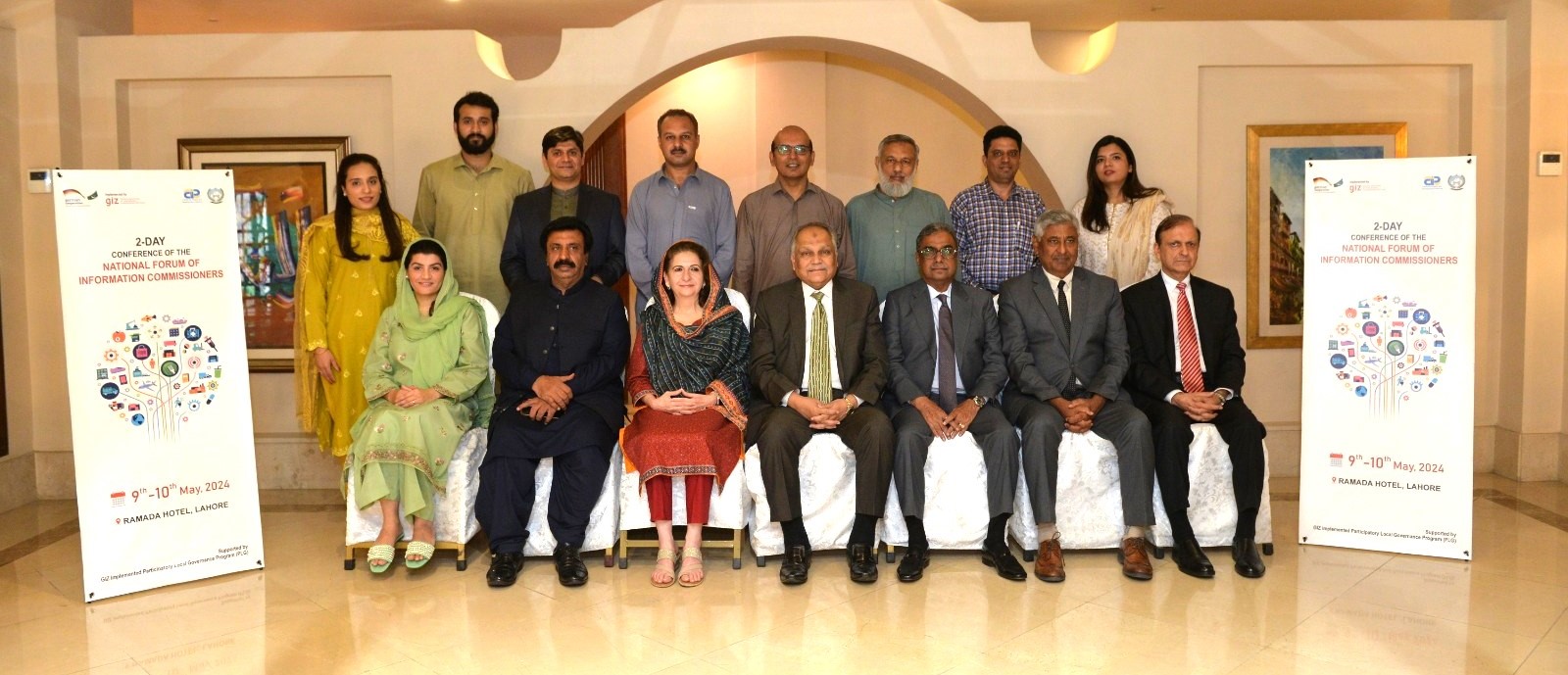News Desk
Islamabad, May 10, 2024
The National Forum of Information Commissioners (NFIC) recently wrapped up a two-day conference in Lahore, focusing on bolstering the efficacy of Information Commissions nationwide. The event, organized in partnership with the Centre for Peace and Development Initiatives (CPDI) and the Deutsche Gesellschaft für Internationale Zusammenarbeit (GIZ), brought together prominent stakeholders, experts, and policymakers from across Pakistan.
Day one saw active engagement between commissioners and various stakeholders, including students, civil society organizations (CSOs), media representatives, advocates, and Public Information Officers (PIOs) during a public session. Panel discussions delved into critical challenges related to the implementation of Right to Information (RTI) laws, commission orders, citizen expectations, and PIO issues. Notable initiatives supported by GIZ, such as women’s facilitation and Khuli Kachehri sessions in Punjab and Khyber Pakhtunkhwa, aimed at enhancing public access to information, were also discussed.
Mr. Mukhtar Ahmad Ali, Executive Director of CPDI, emphasized the vital role of strong and empowered Information Commissions in upholding RTI and ensuring public access to information. He highlighted the pressing issue of vacancies in key Information Commissioner positions since 2019 and 2018, which has disrupted the quorum in several commissions, including those in KP, Sindh, and the Pakistan Information Commission. With the imminent conclusion of the Chief Information Commissioner’s term in Punjab, Ali stressed the urgent need for appointments to maintain commission functionality, echoing the sentiments of all Information Commissioners present.
The second day featured an integration meeting where Commissions shared progress and common challenges. NFIC, established in 2019 by CPDI, serves as a collaborative platform for RTI Commission members. Mr. Shoaib Ahmad Siddiqui, Chief Information Commissioner (CIC) of the Pakistan Information Commission, reported significant strides in establishing the commission’s authority, citing a notable reduction in complaint pendency from 3500 to 1500. Efforts to enhance accessibility through website updates and a more efficient complaint management system were also highlighted.
Ms. Farah Hamid, CIC of the KP Information Commission, outlined significant challenges, including staff shortages, vacant commissioner positions, and inadequate budgetary resources. Despite these hurdles, the commission has made progress in reducing complaint backlogs and conducting hearings. Dr. Jawaid Shah, CIC of Sindh, discussed proactive measures taken by the commission, such as designating PIOs and promoting proactive disclosure of information. Similarly, Mr. Mehboob Qadir Shah, CIC of the Punjab Information Commission, emphasized progress in raising RTI awareness and called for the prompt appointment of his successor by the Punjab government.
In conclusion, all Commissioners pledged to ensure the effective implementation of RTI by advocating for maximum disclosure of information and fostering transparency. They urged government departments to view information sharing with the public as essential, rather than a cause for concern. The Lahore conference marked the fifth meeting of NFIC, reaffirming its commitment to advancing transparency and accountability in Pakistan.


